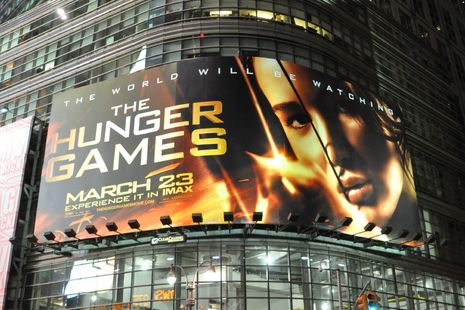The Hunger Games and everything that is wrong with prequels
Watching The Ballad of Songbirds and Snakes reaffirmed my view that prequels are just for profit

Now, more than ever, we are inundated with prequels, sequels, reboots and spin-offs. 2024 promises Gladiator 2, Mustafa: Lion King, Joker: Folie à Deux and Furiosa: A Mad Max Saga. However, the organic art of continuing a story has long since been replaced by warped storylines designed purely for profit. One prequel, in particular, drew my attention as being conceived entirely for the paycheck.
Until recently, I knew little of The Hunger Games. I recall its continual absence from my school’s library and the excitement that accompanied each instalment – but I remained at a distance. So, when it flooded my feed almost a decade later, it seemed the perfect time to take heed and watch the original trilogy just as Hunger Games: The Ballad of Songbirds and Snakes premiered.
Catching Fire was certainly my favourite and doubled my appreciation of Suzanne Collins’ craftsmanship. Grossing $44 million in its opening week, its prequel also appeared to be a hit. Yet, for me, it was merely a poor attempt at tying up non-existent loose ends. Its title explains all: a “ballad” sung by Lucy Gray Baird, played by West Side Story star Rachel Zegler, is peppered into this meandering tale which reveals how the tenth Hunger Games birthed the trilogy’s antagonist, Coriolanus Snow (of course, there are songbirds and snakes too).
“Prequels cannot escape the ‘marketing device’ accusations because, at their core, they are a tool to entice”
The story felt forced, winding down rabbit holes with frustratingly flat characters and making overly explicit references to the well-established trilogy (the mention of “Katniss” was so obviously planted). Unfortunately, this reaffirms my view that prequels cannot escape the “marketing device” allegations because, at their core, they are a tool to entice. I felt obliged to watch The Hunger Games to understand its prequel. However, having done that, friends reminded me that I hadn’t read the books and that more details would be revealed there. One leads to another – the perfect sales technique.
So, as the three-part storyline of the prequel concluded, a pervading whiff of insincerity remained; all three narratives held tightly to their inspiration in a manner that felt unimaginative. A deep dive into the psychology of Snow, loosely inspired by Shakespeare, became necessary. A family tree was drawn to highlight brief appearances from characters like Tigris and his past classmates. Such is the plague of the prequel, always searching for itself within its predecessors. Without the abundant possibilities that characterise a sequel, its limits are set and failure is probable.
“Nostalgia drives the advertisements, not the strength of the performances”
To work perfectly, a prequel must fit into the jigsaw puzzle of an established universe, all while satisfying fan expectations and attempting coherent political messaging. However, any effort at sincere world construction is often undermined by the need to create buzz and generate box-office revenue. Nostalgia drives the advertisements, not the strength of the performances. Truthfully, I’m wary of any prequel as the stories rarely feel like they were meant to be told. Some fans grab at whatever will keep their favourite ever-ballooning universe alive. However, in my mind, all prequels tend to provide are superfluous stories, tall tales and big, big bucks.
Hence, prequels (alongside remakes and spin-offs) fall into a subgenre of film that is uninspired and indebted to the success of what came before – almost like a nepo baby. Similar to those re-runs they show on ITV2 during the holidays, The Ballad of Songbird and Snakes is a good filler but not a firm favourite; it requires little discussion. Indeed, my friend’s incessant demands for my opinion of the prequel fell on deaf ears since all I could come up with was “it was a film”. Perhaps bland neutrality is the best reaction such a capitalist venture can hope for. It was neither as impassioned as Catching Fire nor as satisfying as Mockingjay: Part Two. Yet, my disappointment led me to abandon my critical hat and assume the role of a content and appreciative viewer.
For instance, I was amazed that a series created in my early twenties could survive into this era of short attention spans. The Ballad of Songbirds and Snakes demonstrated that there is perhaps potential for prequels to productively expand upon the original material and to avoid accusations of hastiness and superficiality. Yet, when a prequel is so obviously a cash cow, you start to lose heart.
 Features / Should I stay or should I go? Cambridge students and alumni reflect on how their memories stay with them15 December 2025
Features / Should I stay or should I go? Cambridge students and alumni reflect on how their memories stay with them15 December 2025 News / Cambridge study finds students learn better with notes than AI13 December 2025
News / Cambridge study finds students learn better with notes than AI13 December 2025 News / Dons warn PM about Vet School closure16 December 2025
News / Dons warn PM about Vet School closure16 December 2025 News / News In Brief: Michaelmas marriages, monogamous mammals, and messaging manipulation15 December 2025
News / News In Brief: Michaelmas marriages, monogamous mammals, and messaging manipulation15 December 2025 Comment / The magic of an eight-week term15 December 2025
Comment / The magic of an eight-week term15 December 2025









